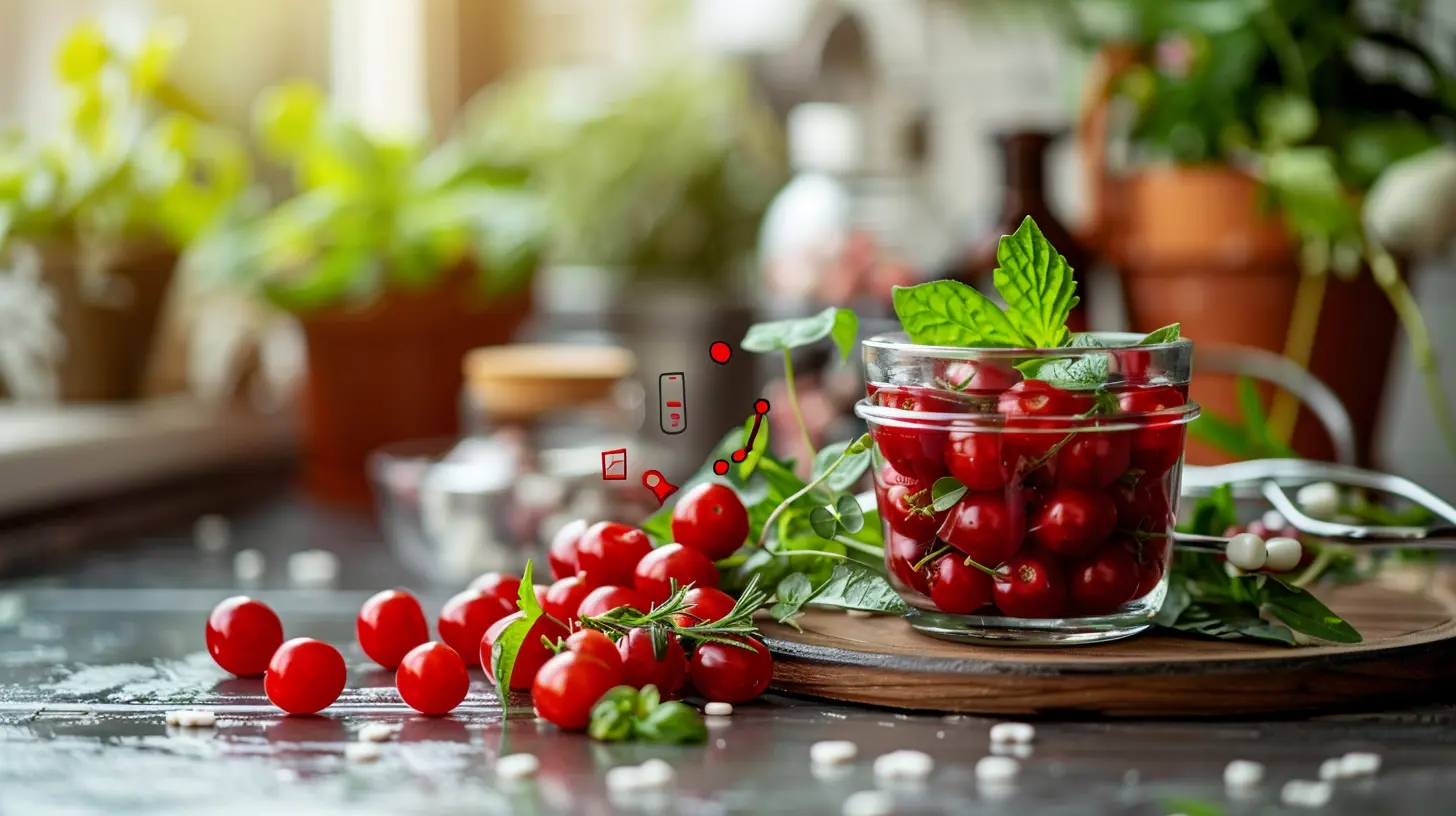18 March 2025
When we talk about blood sugar levels, the usual suspects like carbs, sugary snacks, or even lack of exercise often take center stage. But here's the kicker: there’s something going on beneath the surface that doesn’t get enough attention—inflammation. Yes, that persistent, sneaky villain might be playing a bigger role in your blood sugar imbalance than you think.
In this article, we’re diving deep into the surprising connection between inflammation and blood sugar. Whether you’re managing diabetes, dealing with stubborn weight issues, or simply trying to maintain a balanced lifestyle, understanding this link can be a game-changer.
Brace yourself—because things are about to get eye-opening. 
What Is Inflammation Anyway?
Alright, let’s start with the basics. Inflammation isn’t always the bad guy. In fact, it’s part of your body’s natural defense system. Think of it as your body’s version of a security alarm—it kicks in when there’s an injury, infection, or threat to your health.For instance, if you scrape your knee or catch the flu, inflammation rushes in to fight off the intruders and help with healing. This is called acute inflammation, and it’s a good thing. No complaints here.
But the real trouble starts when this inflammation decides to stick around for the long haul. This is known as chronic inflammation, and it can quietly wreak havoc on your body like an uninvited guest who overstays their welcome. 
So, What’s the Deal with Inflammation and Blood Sugar?
You might be wondering, “What does inflammation have to do with my blood sugar?” The answer: a lot. Think of your body as a complex machine, where everything is interconnected. If one part of the system is out of whack (like chronic inflammation), it can throw everything else off balance—including your blood sugar.Here’s how it works:
1. Chronic Inflammation Disrupts Insulin Sensitivity
Chronic inflammation messes with the way your body responds to insulin—the hormone responsible for regulating blood sugar levels. Think of insulin as the key that opens the door for sugar (glucose) to enter your cells and be used for energy. With chronic inflammation, your body becomes resistant to insulin, and the “key” stops working as it should. The result? Elevated blood sugar levels, also known as insulin resistance.
2. Inflammatory Chemicals Impact the Pancreas
Your pancreas produces insulin, but chronic inflammation can damage this vital organ. Persistent inflammation triggers the release of inflammatory chemicals like cytokines, which harm the pancreas over time. This can further reduce insulin production, complicating blood sugar control.
3. It’s a Vicious Cycle
Here’s the kicker: high blood sugar levels can actually fuel more inflammation. It’s like a toxic loop—too much sugar in the bloodstream promotes inflammation, and inflammation makes it harder to control blood sugar. The cycle feeds itself, creating a snowball effect that’s tough to stop. 
The Signs That Inflammation Could Be Sabotaging Your Blood Sugar
Chronic inflammation is tricky because it often flies under the radar. However, there are some telltale signs that may suggest your body is battling this hidden enemy:- Unexplained Weight Gain: Struggling to lose weight, especially around your belly? Chronic inflammation might be to blame.
- Fatigue: Feeling constantly tired even though you’re getting enough sleep? That could be inflammation draining your energy.
- Brain Fog: Struggling to focus or feeling mentally sluggish? Inflammation affects more than just your body—it takes a toll on your brain, too.
- Frequent Cravings: Persistent sugar or carb cravings might indicate that your body’s blood sugar regulation is out of sync.
- Aches and Pains: Chronic joint or muscle pain can sometimes signal underlying inflammation. 
The Role of Diet: Are You Feeding the Fire?
Here’s a hard truth: what you eat can either fuel inflammation or help fight it. Certain foods act like gasoline on an already raging fire, while others act as a soothing balm.Foods That Promote Inflammation (Avoid These!)
- Refined Carbs and Sugars: Think white bread, pastries, sugary drinks, and processed snacks. These cause rapid blood sugar spikes, which trigger inflammation.- Trans Fats: Often found in fried foods, margarine, and packaged treats like cookies and chips. These are inflammatory landmines.
- Excessive Alcohol: Enjoying a glass of wine now and then is fine, but too much alcohol can irritate your system and worsen inflammation.
Foods That Fight Inflammation (Load Up on These!)
- Leafy Greens: Kale, spinach, and other greens are loaded with antioxidants that help tame inflammation.- Fatty Fish: Salmon, mackerel, and sardines are rich in omega-3 fatty acids, which are known for their anti-inflammatory properties.
- Berries: Blueberries, strawberries, and raspberries are bursting with antioxidants that combat inflammation.
- Nuts and Seeds: Almonds, walnuts, flaxseeds, and chia seeds are great sources of anti-inflammatory fats.
- Spices: Turmeric, ginger, and cinnamon aren’t just tasty—they’re inflammation-fighting superstars.
Lifestyle Habits That Can Make or Break the Cycle
Your diet is just one piece of the puzzle. Your day-to-day habits also determine whether chronic inflammation takes the driver’s seat or gets kicked to the curb.Do More of This:
1. Move Your Body: Exercise is like a magic wand for inflammation. Even simple activities like walking or yoga can help.2. Get Quality Sleep: Sleep is when your body repairs itself. Poor sleep can worsen inflammation and mess with your blood sugar.
3. Stress Less: Chronic stress triggers inflammation. Practice mindfulness, meditation, or relaxation techniques to keep stress at bay.
4. Hydrate: Drinking enough water helps flush toxins out of your system, which can reduce inflammation.
Do Less of This:
- Smoking: Cigarette smoke is packed with chemicals that fan the flames of inflammation.- Excess Sitting: Sitting for long periods every day can contribute to swelling and inflammation.
- Skipping Meals: This can cause blood sugar swings, which only fuel the inflammation-fire combo.
Supplements and Natural Remedies to Consider
Sometimes your diet and lifestyle might need an extra push. Certain supplements and natural remedies have been shown to help reduce inflammation and support healthy blood sugar levels:- Omega-3 Fatty Acids: Found in fish oil supplements, these are excellent for fighting inflammation.
- Curcumin: The active ingredient in turmeric, curcumin, is a powerful anti-inflammatory.
- Magnesium: This mineral helps regulate blood sugar and reduces systemic inflammation.
- Probiotics: A healthy gut means less inflammation. Probiotics support your gut health by balancing good bacteria.
Not sure where to start? Always talk to your healthcare provider before adding new supplements to your routine.
Wrapping It Up: Inflammation Is the Missing Puzzle Piece
So, what’s the takeaway here? Inflammation and blood sugar imbalance are more connected than most of us realize. Chronic inflammation doesn’t just quietly affect your body—it actively sabotages your blood sugar regulation, making it harder to stay healthy.The good news? You have the power to take control. By eating anti-inflammatory foods, adopting healthy habits, and staying mindful of the hidden role inflammation plays, you can break the cycle and reclaim your health.
Remember, small changes can lead to big improvements. Start by swapping that sugary snack for a handful of almonds, or trade your sedentary afternoon for a brisk walk. Your body will thank you for it.





Caelestis McMahan
Inflammation: the uninvited guest at the blood sugar party. Time to kick it out!
April 3, 2025 at 3:10 AM